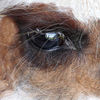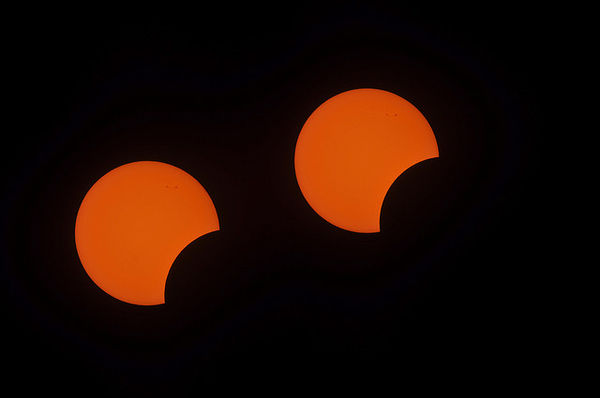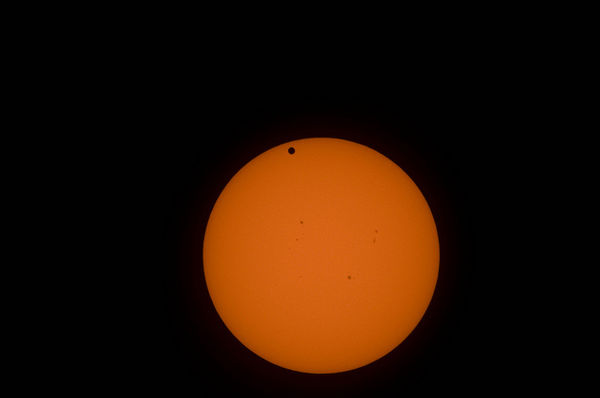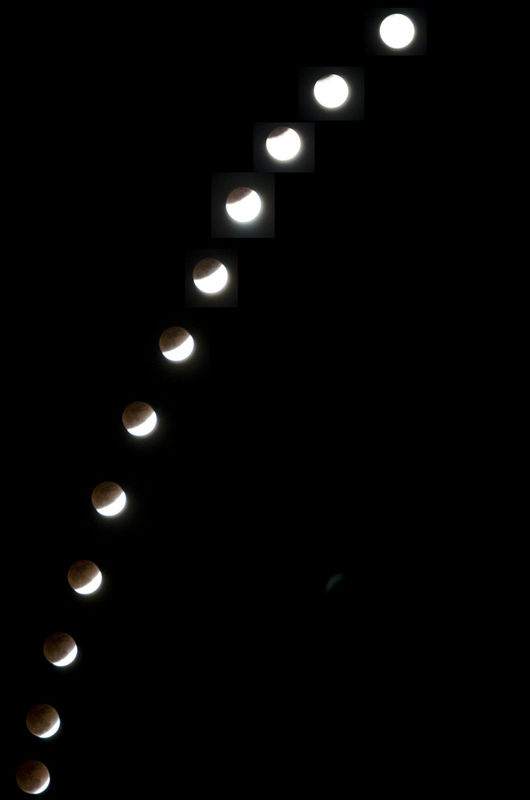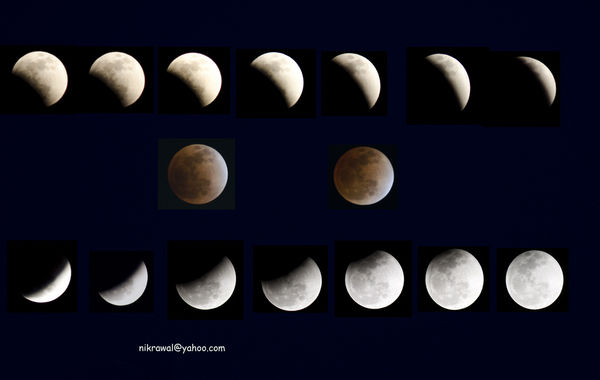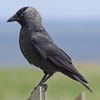Total Eclipse of the Moon photography from sea
Jan 14, 2015 10:53:50 #
I am super excited! I have just booked myself on a cruise from the 15th - 27 March to see the total eclipse of the sun, and hopefully the Northern Lights, cruising on the Cruises and Maritime ship, the Magellan, to go around the Shetland Isles, hopefully seeing the eclipse from sea on the 20th, then on to Iceland and the Faroe Islands. Is there a previous thread to tell me how to photo a total eclipse safely or can anyone please give me some advice: protection for eyes, which lens, shutter speeds, etc. I still have my Canon 5DMkII. Would a wide angle be better (16-35mm lens) or a telephoto (100-400mm). Or even a midrange (24 - 105mm)? And can one use a tripod on a moving boat, or would all the movement make that quite useless? All practical advice very gratefully received, thank you.
Jan 14, 2015 11:56:35 #
photosarah wrote:
I am super excited! I have just booked myself on ... (show quote)
Sounds like a fantastic trip you've organised there. I think the only practical advice I can give you is - take me with you!!! :lol:
Jan 14, 2015 13:45:37 #
Luggerbugs wrote:
Sounds like a fantastic trip you've organised there. I think the only practical advice I can give you is - take me with you!!! :lol:
You are very welcome, although I am not sure my husband would agree - since he is not coming with me!!
:D
Jan 14, 2015 16:01:33 #
photosarah wrote:
You are very welcome, although I am not sure my husband would agree - since he is not coming with me!!
:D
:D
I promise not to tell him.
Jan 14, 2015 16:21:26 #
photosarah wrote:
I am super excited! I have just booked myself on ... (show quote)
1. Eye protection. Go to any NAPA or welding supply and pick up a pair of cheap welding goggles. Not the full face hood. Goggles will have a strap that goes around your head and a flip up lens holder. #10 glass is used for welding but a #8 will probably be dark enough for your purpose. You can just hold the glass in front of your eyes but that is awkward when trying to use a camera. Or, just view it using live view on your LCD screen. It can't put out enough light to hurt your eyes. Stay away from the viewfinder.
2. Tripod. Probably not unless you are using high shutter speeds. (I have no real idea what shutter speed will work best. Never shot an eclipse) You will almost always have some movement when at sea and even tied to the dock there is considerable vibration from machinery transmitted throughout the hull.
3. Lens. Once again, I never shot an eclipse but I suspect that your 100-400 would be the ticket.
Have fun. Post some of your results.
Edit: Just noticed you are from the UK. Change "NAPA" to "auto parts store" in paragraph 1. :-D
Edit #2: Moon eclipse! I thought you were asking about a solar eclipse when you asked about eye protection. No eye protection necessary for a lunar eclipse. Definitely the 100-400 for the moon!
I think I should take up drinking! Maybe it will improve my reading comprehension! :lol:
Jan 14, 2015 17:10:26 #
LFingar wrote:
1. Eye protection. Go to any NAPA or welding suppl... (show quote)
LFingar: It is a solar eclipse. It is happening on March 20th. So I think your first reading was right, and thanks for your information. Having just re-read my post, I did say "total eclipse of the sun", by which I meant "Solar eclipse". I must look it up on Google, does describing it as a "total eclipse of the sun" mean it is a Lunar eclipse? Maybe it is me who is muddling you (and me who needs that drink!): anyway it is certainly a solar eclipse and I will certainly need to protect my eyes. I hadn't realised that Live View would be OK, thanks for that piece of advice.
Jan 14, 2015 17:21:20 #
LFingar wrote:
1. Eye protection. Go to any NAPA or welding suppl... (show quote)
Answer #2. I see where I went wrong, it's in the title. Sorry to all, I was just so excited, got it wrong. Just to confirm, it is indeed an eclipse of the Sun!
Jan 15, 2015 06:31:39 #
We were at sea for the "possible Meteor Storm" last July. I learned a couple of very important lessons:
1. The ship is NEVER a stable platfrom. Pay close attention to our shutter speed to minimize the effect of this. Higher ISOs are likely needed to minimize the effect of the ship's motion. And yes, you want a tripod. the last thing the camera needs is your unconcious attempt to offset the ship's motion. Remote shutter release and mirror lockup are also helpful.
2. The ship brings it's light pollution with it. It is likely to be much brighter than you would like. You need to shoot from the edge of the deck out over the water. Having a lens hood to minimize the intrusion of light from the sides actually helps a lot.
3. Don't hesitate to ask the Captain for help with the night lighting.
Our captain actually reduced the exterior lighting on the top deck, but it only helped a little, because they still were pretty bright "for safety reasons". He also slowed the ship a few knots to try to mimimize ship speed from affecting the photography. I don't think that helped much.
4. Don't be surprised at the company you are likely to have. We had tripods and cameras hanging everywhere off the ship. We also had folks taking flash pictures of the sky! We also had several hundred people without cameras just enjoying the night sky and the show (which didn't really materialize).
Did it all work for me? Yes and no. I got some images of a few meteors, but the really good ones we did see were just outside the camera's FOV. Then, to top it off, after we got off the ship, I had my camera bag stolen that had my hard drive that had all those images on it. However, I still have my memories - well, for a few more years, anyway!
I just realized that I got totally confused about whether you were talking about Lunar or Solar eclipse.
All that nighttime stuff doesn't apply to your case. Nor will light pollution matter when you are looking directly into the sun. Never mind........
1. The ship is NEVER a stable platfrom. Pay close attention to our shutter speed to minimize the effect of this. Higher ISOs are likely needed to minimize the effect of the ship's motion. And yes, you want a tripod. the last thing the camera needs is your unconcious attempt to offset the ship's motion. Remote shutter release and mirror lockup are also helpful.
2. The ship brings it's light pollution with it. It is likely to be much brighter than you would like. You need to shoot from the edge of the deck out over the water. Having a lens hood to minimize the intrusion of light from the sides actually helps a lot.
3. Don't hesitate to ask the Captain for help with the night lighting.
Our captain actually reduced the exterior lighting on the top deck, but it only helped a little, because they still were pretty bright "for safety reasons". He also slowed the ship a few knots to try to mimimize ship speed from affecting the photography. I don't think that helped much.
4. Don't be surprised at the company you are likely to have. We had tripods and cameras hanging everywhere off the ship. We also had folks taking flash pictures of the sky! We also had several hundred people without cameras just enjoying the night sky and the show (which didn't really materialize).
Did it all work for me? Yes and no. I got some images of a few meteors, but the really good ones we did see were just outside the camera's FOV. Then, to top it off, after we got off the ship, I had my camera bag stolen that had my hard drive that had all those images on it. However, I still have my memories - well, for a few more years, anyway!
I just realized that I got totally confused about whether you were talking about Lunar or Solar eclipse.
All that nighttime stuff doesn't apply to your case. Nor will light pollution matter when you are looking directly into the sun. Never mind........
Jan 15, 2015 09:09:22 #
Hi Photosarah,
I hv done some photography of both solar and lunar eclipse, so I can give you some direction on both (and am not drunk)😊! As far as solar shooting is concerns, I have shot both solar eclipse as well as Venus transition of the sun of 2012.
FOR SOLAR ECLIPSE
First, do not go for cheap welder's glasses...you need solar glasses using something called BAADER FILM. You will not only need these for yourself to wear when u look at the Su directly but also on the lens (as a filter) ....otherwise your camera sensor will get damaged as concentrated sunrays focused thru the lens hit the sensor. Once you have the baader film filter/screen on yr lens, then you will be also able to look through your viewfinder and focus /frame the sun. What you will then see from the viewfinder will be a completely dark frame with just the sun visible with very low intensity in either white or yellow (depending on which baader film you choose). Take a few shots and get the aperture and shutter speed fixed...since sun is a bright object you can go upto f/13 and shutter speed upwards of 1/500...suggest you take a few shot before eclipse commences to get right aperture shutter speed combo.
Ideally get the largest focal length you own...or,hite one 300/400/500mm even zoom will do like 150-500 pr 200-500. More questions write to me. Attaching a multiple exposure of eclipse and Venus transition (the black dot between 11 and 12 o clock is Venus).
Apologies for spelling mistakes...typed,on touchscreen phone. More details write to me at: nikhil.rawal@gmail.com
I hv done some photography of both solar and lunar eclipse, so I can give you some direction on both (and am not drunk)😊! As far as solar shooting is concerns, I have shot both solar eclipse as well as Venus transition of the sun of 2012.
FOR SOLAR ECLIPSE
First, do not go for cheap welder's glasses...you need solar glasses using something called BAADER FILM. You will not only need these for yourself to wear when u look at the Su directly but also on the lens (as a filter) ....otherwise your camera sensor will get damaged as concentrated sunrays focused thru the lens hit the sensor. Once you have the baader film filter/screen on yr lens, then you will be also able to look through your viewfinder and focus /frame the sun. What you will then see from the viewfinder will be a completely dark frame with just the sun visible with very low intensity in either white or yellow (depending on which baader film you choose). Take a few shots and get the aperture and shutter speed fixed...since sun is a bright object you can go upto f/13 and shutter speed upwards of 1/500...suggest you take a few shot before eclipse commences to get right aperture shutter speed combo.
Ideally get the largest focal length you own...or,hite one 300/400/500mm even zoom will do like 150-500 pr 200-500. More questions write to me. Attaching a multiple exposure of eclipse and Venus transition (the black dot between 11 and 12 o clock is Venus).
Apologies for spelling mistakes...typed,on touchscreen phone. More details write to me at: nikhil.rawal@gmail.com
Jan 15, 2015 09:18:01 #
Oh forgot to mention...focus manually to infinity. And yes do take the time to look at the eclipse directly (thru ur baader film eye protection...and,rest assure this film is available at any astronomy shop selling,telescopes,etc and is safe for,eyes...hv seen,two eclipses,thru I and I can still see and am ready to shoot more eclipses.
Jan 15, 2015 09:21:24 #
Jan 15, 2015 10:38:20 #
Eblong wrote:
We were at sea for the "possible Meteor Storm... (show quote)
Hi Eblong, it was me that made the muddle: I put Moon into the Title when I meant Sun . It is a solar eclipse that I am hoping to see, and thank you for your recommendations. The voyage is going especially to see the eclipse on the 20th March, so I would hope that the Captain will do all that he can to make this possible i.e. low lights, slow motion, etc. Thank you for replying, and for your advice.
Jan 15, 2015 10:40:42 #
nikrawal wrote:
Oh forgot to mention...focus manually to infinity. And yes do take the time to look at the eclipse directly (thru ur baader film eye protection...and,rest assure this film is available at any astronomy shop selling,telescopes,etc and is safe for,eyes...hv seen,two eclipses,thru I and I can still see and am ready to shoot more eclipses.
Hi Nikrawal Thank you so much for such good advice. Your pictures are awesome, and the lunar eclipse images following. I will Google Baader film and see what I can find. I will email you after a search, and to "pick your brains" a little more for advice. Many thanks, Sarah
Jan 15, 2015 10:50:27 #
Most welcome Sarah...😊 and forgot to mention...you really can shoot solar eclipse without a tripod with high f values and shutter speeds. But if you want multiple exposure like the one I have attached, then you will need a tripod. You will need a tripod for shooting a lunar eclipse...and a wired or wireless remote to avoid camera shake.
Jan 15, 2015 17:13:05 #
photosarah wrote:
I am super excited! I have just booked myself on ... (show quote)
You should be excited - I saw the 1999 total solar eclipse as it passed over Austria. Amazing experience!
As you'll have heard, be VERY careful. Even a fleeting glimpse of the sun through a lens will permanently burn out your retina.
There's two aspects to the photography- the period of totality when the sun is covered by the moon, for a minute or two, and the rest either side when it isn't! You'll need a telephoto -400mm will just about be enough- and it will be easier with a decent tripod -for support, not a rigid fixture on a moving ship- though you'll be able to hand-hold at a push.
The bit when the sun isn't covered is easy- get some film from these people: http://www.harrisontelescopes.co.uk/acatalog/Baader_AstroSolar_Safety_Film.html#a2459281 and use some masking tape to tape some of the film over one end of a cardboard tube which will fit a little loosely over the lens. You will need to be able to take this off when the eclipse is total, and slip it back on when the sun appears again. Once you've prepared this- well before your holiday!- you can practice on the heaps of sunshine between now and then to get the best exposure settings. This will depend on the exact light transmission of the film, but I would suggest F8 aperture, 1/500 to 1/1000 if that doesn't push the ISO too high.
The totality bit is more difficult. I'd suggest you get used to photographing the moon between now and your holiday. It's in full sun, so expose accordingly. Some people struggle with focus. Before the event, you need to know exactly where your focus ring is positioned when at true infinity- I doubt that the autofocus will work on the day with the film in position, so switch off auto-focus and set it manually. You'll no doubt move it when placing and removing the film/cardboard, so take care. As for exposure during totality, I'm guessing. I suspect the usual moon setting won't be far off, but I'd bracket quite widely. When I saw totality, a few of the brightest stars were visible, which would suggest that you might need to increase exposure by a couple of stops from the moon setting. You might be lucky and find the settings are the same as for the sun with film... Practice, practice, practice. Finally, don't spoil the live experience by fussing with your camera, especially as totality approaches.
Most of all- pray for a clear sky! Good luck, and I'm SO jealous!
If you want to reply, then register here. Registration is free and your account is created instantly, so you can post right away.
